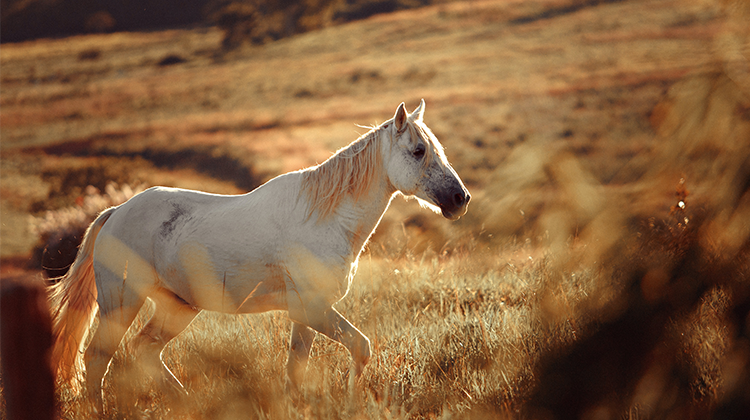1. Pulga atrás da orelha
It means to have suspicions about something or someone, to be suspicious about a specific fact, or to be ungrateful about a certain fact or revelation.
E.x.: -a minha vizinha anda a tirar tudo de casa, desconfio que vá vender a casa.
-Ah, já estás com a pulga atrás da orelha!
e.g: -My neighbor is taking everything out of the house, I suspect she's going to sell it
-Ah, you've got the flea behind your ear!
2. Lágrimas de crocodilo
It is a reference to the false display of a person's emotions, as it is believed that crocodiles do not cry.
Ex.: A Ana tem sempre tudo o que quer dos pais com aquelas lagrimas de crocodilos.
E.g.: Ana always gets everything she wants from her parents with those crocodile tears (fake tears).
3. Engolir sapos
The expression swallowing toads is used when we are forced to tolerate unpleasant things without being able to respond.
Ex.: Esta semana tenho de ir ao casamento da minha prima e não quero
E.g.: This week I have to go to my cousin's wedding and I don't want to
4. Memória de elefante
It is an expression to refer to people who have a good memory, who do not forget things, and who do not forget things easily. We say this expression because people says that elephants have a great memory.
Ex.: -Lembraste da roupa do teu aniversário do ano 2000?
-Claro que me lembro, tinha um vestido azul e branco.
E.g.: -Do you remember your birthday outfit from 2000?
-Of course, I remember, I was wearing a blue and white dress.
5. Macaquinhos no sótão
It means having mistrust or unfounded fears.
Ex.: -Ai amiga, tenho medo que haja um tsunami.
-Lá estás tu com macaquinhos no sotão, não há tsunamis na Suíça.
E.g.: Oh my friend, I'm afraid there's going to be a tsunami.
-There you are with little monkeys in the attic, there are no tsunamis in Switzerland.
6. A cavalo dado não se olha o dente
it means, in general, that when we receive a gift, we should be grateful and show contentment, even if we don't like it.
Ex.: -Mãe! Não gosto do presente da avó.
-Não reclames, a cavalo dado não se olha o dente.
Ex.: -Mom! -Mom! I don't like Grandma's present.
-Don't complain, you can't look at something free or given.
7. Quem não tem cão caça com gato
This expression is a metaphor that means that we must go and not give up even without all the conditions and must fix the situation.
Ex.: - Não tenho a roupa indicada para a festa de Primavera. Deveria de usar um vestido longo e não tenho.
-Tens um macacão comprido, poderias usá-lo e ir mesmo assim.
E.g.: - I don't have the right clothes for the spring party. I should wear a long dress and I don't.
-You have a long jumpsuit, you could wear it and go anyway.
8. Cão que ladra não morde
shows that some people threaten with words, but actually do nothing, so it is not necessary to fear them
Ex.: -O meu vizinho odeia as minhas plantas, diz sempre que as vai destruir.
-Oh, tenha calma. Cão que ladra não morde.
Eg.: -My neighbor hates my plants, he always says he will destroy them.
-Oh, take it easy. A dog that barks doesn't bite.
9. Tirar o cavalinho da chuva
we want to convey to that person that he loses his illusions, that he does not have hope, and that he gives up on the matter in mind, because it will never come true
Ex.: -Mãe! Quero ir à DisneyLand Paris no Natal.
-Bem podes tirar o cavalinho da chuva.
Eg.: -Mom! -Mom! I want to go to Disneyland Paris for Christmas.
-Well, you can take your mind off it.
10. Vozes de burro não chegam ao céu
The expression applies to those who wish us harm or to those who say something unfounded or gratuitous with the intention of offending or offending us.
Ex.: - A minha vizinha está louca, a mulher insulta toda a gente!
- Não ligues! Vozes de burro não chegam ao céu!
Eg.:
- - My neighbor is mad, the woman insults everyone!
-Don't pay attention! Donkey voices don't reach heaven!
11. Nem que a vaca tussa
It is believed that cows do not cough, so we use this idiom for something that will not happen at all
Ex.: -Hoje vamos fazer parapente!
-Não vou nem que a vaca tussa!
Eg.: -Today we're going to do paragliding!
-I won't go even if the cow coughs!
12. Burro velho não aprende línguas
is a popular expression, meaning intelligence and learning are not possible after a certain age.
Ex.: -Avó deverias de aprender a fazer surf!
-Ó filho, já não tenho idade para isso. Burro velho não aprende línguas.
Eg.: -You should learn to surf, Grandma!
-Oh son, I'm too old for that. Old donkeys can't learn languages.







